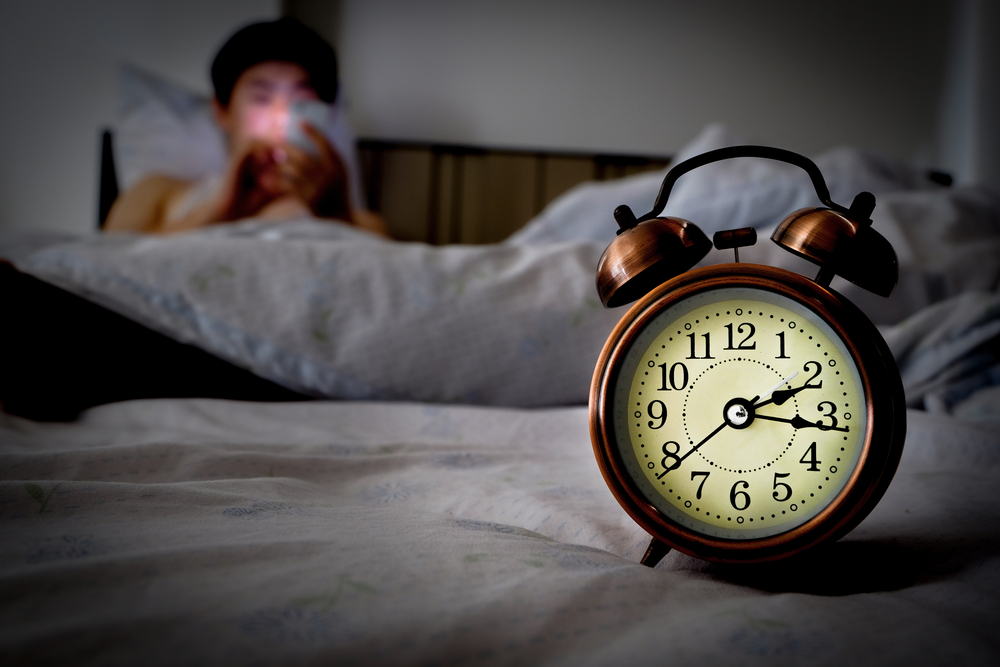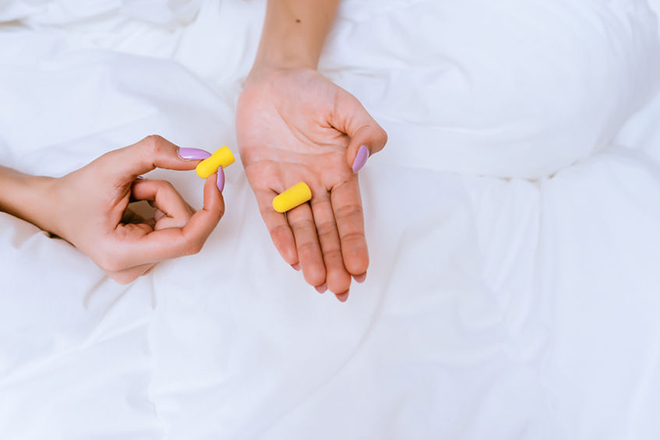Sleepless nights are a problem that plague many a Hongkonger, with more than a third us gaining only six and a half hours each night, less than the recommended eight hours. While many of us turn to herbal teas and other natural remedies to help lure us into La-La Land at the end of busy day, the reality is that the key to getting a better night’s sleep does not lie in what we do in the hour before we go to bed, but what we do first thing in the morning and throughout the day. We caught up with sleep specialist and founder of Sleep HQ,
Kate Bridle, to find out more.
[pro_ad_display_adzone id=“73367”]
When we fall asleep and how well we sleep are controlled by two main mechanisms. The first is our circadian rhythm (or body clock) which controls many things, but importantly it controls when we feel awake and when we feel sleepy. The second mechanism is to do with how many hours we have been awake, and what happens during those hours to build enough sleep ‘drive’. For optimal sleep, we need to understand how to ensure both of these mechanisms are finely tuned! The following tips will help you do exactly that, and with consistency, you should start to see some huge improvements in your sleep quality and daytime energy levels (including finding it easier to get out of bed in the mornings!) after two to three weeks.

1. Wake Up at a Regular Time Every Day of the Week
Yes, this includes weekends. If you are looking to improve your sleep then this is the first step. As adults, we generally have a wake window of between 16 and 18 hours, meaning that after this amount of time, we start to feel sleepy. By maintaining
a regular wake up time, you will fall asleep more consistently at a similar time each evening.

2. Use Light Strategically
Light is the biggest influencer on our body clock. The sensors in the retina of our eye are designed to be specifically sensitive to blue light, which is what we get from natural day light. Getting plenty of light within the first 30 minutes of our regular waking time is important to keep our circadian rhythm running like clockwork. This alters the hormones that are released in the brain, improving our energy levels and mood. If your wake up time is before sunrise, then turn on bright lights in your home or invest in a dawn simulator alarm clock. Morning light exposure also influences how much melatonin (our sleep hormone) we produce in the evening, which is required to fall asleep and stay asleep throughout the night. It should start to be released as the sun goes down, however with blue lights from our phones, tablets, and computers being shone directly into our eyes each evening, we confuse our brain into thinking it is daytime. Avoiding all blue light
at least 90 minutes before bed is very important, so turn off the tech, and switch to soft, yellowish lamps or candle light.

3. Take 10 Minutes to Relax First Thing
This is very important to start to reduce our cortisol levels. Cortisol is another important hormone which helps regulate our sleep wake cycle. It is commonly referred to as our stress hormone, as we get a surge of it during stressful situations, and it works along with adrenaline to provide a physical response to this stress. As well as this, the level of cortisol also gradually rises in the early hours of the morning to help naturally wake us up when we have had enough sleep. Once we are awake, our cortisol levels should begin to fall immediately, and continue to fall throughout the day, ready for when melatonin needs to be released. Although we rarely need to respond to physical danger first thing in the morning, we often wake to a loud, unpleasant sounding alarm, proceed to check our phone and emails, or start rushing around getting ourselves and the kids ready to get out of the house on time. All of these things mean that our cortisol level never gets a chance to fall. Chronic stress throughout the day means that we have persistently high levels of cortisol, which significantly effects our chances of falling asleep. So give your body the best start in the morning by
taking 10 minutes to listen to some music you love while getting your dose of bright light, or get into the habit of some gentle yoga stretches. Try and take a couple of short ‘time outs’ throughout the day too, and you'll find that you relax into sleep much easier come bedtime.

4. Address Your Caffeine Intake
Caffeine first thing in the morning will not only send your cortisol levels even higher, but it is a diuretic and will therefore contribute to the already very dehydrated state that your body is in after 7 or 8 hours of no fluid intake. In order for the cells of our body to work and have energy, they need to be hydrated, so
switch your morning coffee for a large glass of water or herbal tea. Caffeine is still in our system for 8 to 9 hours after consuming it, so
avoid all caffeine from lunchtime onwards. IF you are serious about improving your sleep, go for a complete caffeine detox. After 3 to 4 days of headaches and low energy, you will feel like a different person with extra energy and deeper sleep.

5. Move More
To get plenty of the deep restorative sleep we need, we need to be physically tired. We weren’t designed to sit down all day, so
try and incorporate as much movement into your day as possible. Aim to get your heart rate up each day, as this helps to build up a chemical in the brain called adenosine, which strengthens our sleep ‘drive’. However, try to avoid intense exercise 3 hours before bed as the adrenaline produced as a result will affect our ability to fall sleep.

6. Block Out the Noise!
Lastly, living in a bustling city such as Hong Kong, it is extremely important to wear earplugs to block out the noises from the streets below, our bed partners, and neighbours. Every 60 to 90 minutes we cycle through a light sleep phase where we are easily woken by even the slightest noise. Wearing earplugs will help prevent this, leading to more consolidated, better quality sleep. If you have small children that you need to listen out for, then having some white noise playing throughout the night is helpful for both the children and the parents. Don’t worry – you will still hear your alarm clock, especially if you have already started strengthening your body clock so that it knows what time to wake up each day!
Read more! Explore the rest of our
Health & Wellness section on
Localiiz.
[button color="blue" size="medium" link="https://localiiz.us4.list-manage.com/subscribe/post?u=c2964a434922598f5d8ee53ff&id=07d327a2e8" icon="" target="true"]Subscribe to receive our weekly newsletter[/button]





